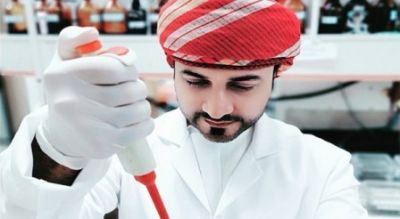
Times of Oman
Muscat: In a rare feat, Omani researcher Dr Auf bin Abdul Rahman Al Khan received the prize for best research paper at the International Conference for Medical Sciences in South Africa.
According to a statement issued by the Ministry of Higher Education, Al Khan’s paper titled ‘Concentration of thyroid hormone receptors’ has paved the way for cost-effective treatment of bone cancer.
Dr Al Khan, who holds a PhD in biomedical sciences and works as senior (specialist) in histopathology laboratory at Sohar Hospital has under the supervision of Professor Jenin Danx and Professor Samantha Richardson RMIT University in Australia, conducted a research study on two types of bone growth proteins called thyroid hormone receptors, namely PTHR1 and PTHrP.
The research focused on studying the extent to which the concentration of PTHR1 and PTHrP protein in cancerous tissue correlates with the average life of a bone cancer patient, through the use of immunochemical pigments, medical equipment and special analytical computer programmes. The final results of the research showed that the concentration of one of these two proteins, the PTHR1 protein, is closely related to the average length of a patient’s life.
The results indicated that for patients who have a cancerous tumour that contain a high concentration of PTHR1 protein chances of living are up to 212 days, while patients with a tumour that has a low percentage of PTHR1 protein can live for a longer period of up to 459 days.
For the first time the research team used dog tissues as a model of bone cancer research in humans instead of experimental rats, because dog tissues are close to human tissues in terms of the body structure, living environment, mechanism of disease creation, and disease emergence as compared to laboratory test rats.
The research included a case study of a group of patients who received chemotherapy and amputation of the part with cancer. Their cancer cells did not spread to another organ upon initial diagnosis of the disease.
This discovery has been published recently in the journal of the natural world group Nature and is one of the most prominent scientific journals in the world.
A number of researchers from RMIT University, Western Sydney University, Murdoch University, and a number of clinics and hospitals in Melbourne, Australia, participated in the collection of study samples.
Dr Al Khan and his research team hope to obtain support to enable them to move to the next research stage that is the design of the drug and the start of clinical trials.